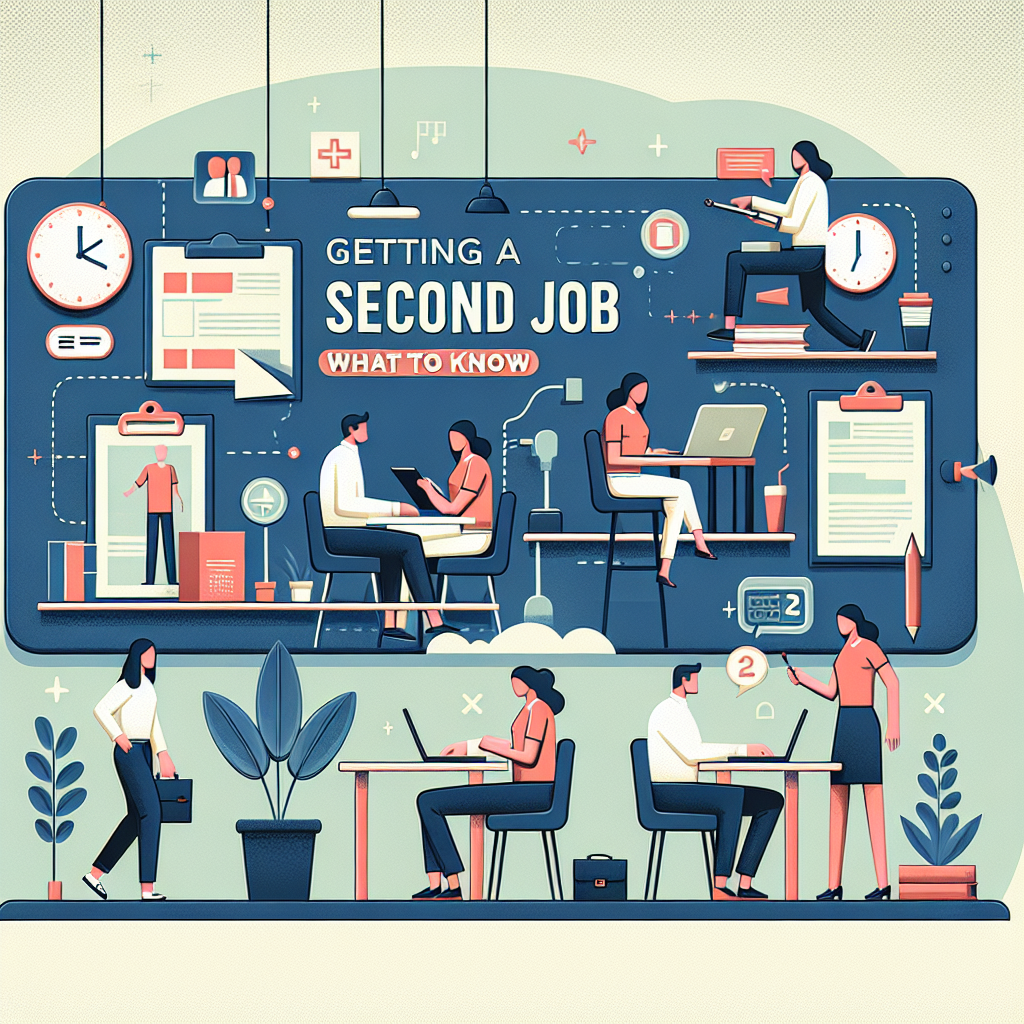Getting A Second Job: What to Know is a common concern for people balancing finances, education, or career goals; this article outlines what to consider before you take on additional work. A second job can help you reach savings goals, pay down debt, or gain new skills, but it also introduces tax, scheduling, and workplace complications that are worth understanding upfront.
Getting a second job — key considerations
Before accepting extra work, evaluate your motivations and constraints. Are you seeking more income, experience in a new field, or flexible hours? Consider the time commitment and how it will affect your primary job, studies, or family life. Assessing these factors helps you pick opportunities that fit your priorities instead of simply adding stress.
Employer policies and conflicts
Check your current employer’s policies on outside employment. Some employers require disclosure or pre-approval for moonlighting, especially in roles with noncompete clauses, confidentiality concerns, or potential conflicts of interest. Violating a policy can lead to disciplinary action, so get clarity in writing when possible.
Schedule, workload, and burnout
Think through daily logistics: travel time, peak hours, rest, and recovery. If both roles demand evening or weekend hours, you may find your productivity and wellbeing suffer. Build a realistic weekly schedule and test it for a short period before committing long-term.
Pay, taxes, and benefits
Income from a second job is usually taxable and may affect your withholding, eligibility for credits, or overall tax bracket. Keep careful records of earnings and withholdings. If the second job is gig work or contract-based, you may be responsible for self-employment taxes. Also evaluate how additional hours impact benefits like overtime eligibility, employer-provided health insurance, or retirement contributions.
For context on how many people hold multiple jobs and the broader trends, see this overview from the U.S. Bureau of Labor Statistics: BLS report on multiple jobholders.
Where to look and how to apply
Target opportunities that match your skills and schedule. Retail, hospitality, delivery, tutoring, and gig economy roles often offer flexible hours. If you’re a student or early in your career, focus on positions that build relevant experience or offer networking access.
For lists of platforms and boards tailored to students and flexible work, consult the ultimate guide to job boards for college students, which highlights free and paid options and tips for applying efficiently.
Interview and negotiation tips
Be transparent about availability during the application process. When asked about scheduling, offer concrete blocks of time you can work. If negotiating wages, reference market rates for similar part-time roles and be prepared to explain what you bring (reliable hours, relevant skills, quick training).
- Set a trial period (e.g., 30–60 days) to evaluate fit and sustainability.
- Track hours, earnings, and tax documents separately for clarity.
- Prioritize rest and a consistent sleep schedule to prevent burnout.
- Keep communication open with both employers about schedule changes.
Managing finances and career impacts
A second job can accelerate short-term financial goals, but it may delay long-term career progress if it reduces time for professional development in your main role. Decide whether the extra income funds a temporary need (emergency savings, paying off debt) or a sustained lifestyle. Consider automating savings from your supplemental income so it directly supports your goals.
Legal and benefits checklist
Make sure you understand:
- Whether overtime laws apply when combined hours exceed full-time thresholds.
- How paid leave, health benefits, and retirement plans are affected.
- Any licensing or permit requirements for freelance or contract work.
- Recordkeeping needs for taxes and potential deductions.
Work-life balance strategies
Set boundaries and protect personal time. Use scheduling tools, share your calendar with close family members, and block regular downtime. If the second job is temporary, put an end date on your commitment to reassess after achieving the financial target.
FAQ
Q: Will a second job affect my taxes?
A: Yes. Additional income increases taxable earnings and may change withholding needs. If the second role is freelance, expect to make estimated tax payments and pay self-employment taxes.
Q: Can my employer stop me from taking a second job?
A: Employers can restrict outside work if it creates conflicts of interest, violates contracts, or interferes with job performance. Review your employment agreement and company policies; when in doubt, ask HR for guidance.
Q: How do I avoid burnout while working two jobs?
A: Prioritize sleep, establish a sustainable schedule, set realistic goals for duration and earnings, and reassess regularly. Consider reducing hours or choosing more flexible roles if you notice declining health or performance.



